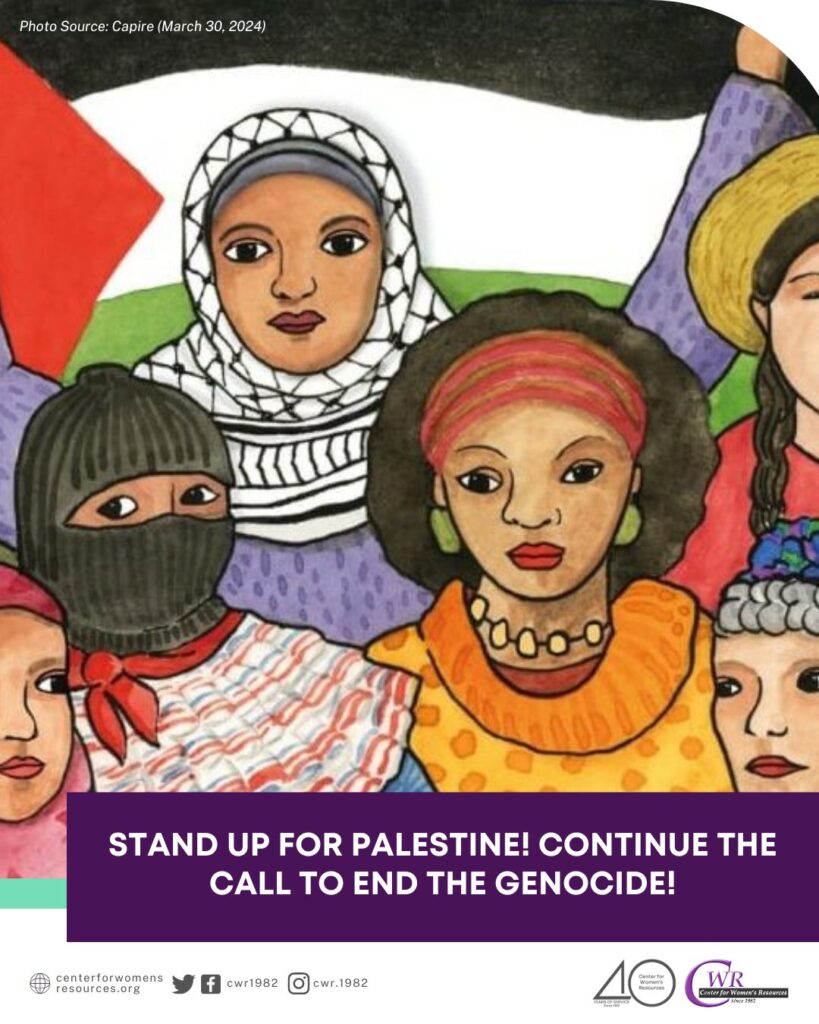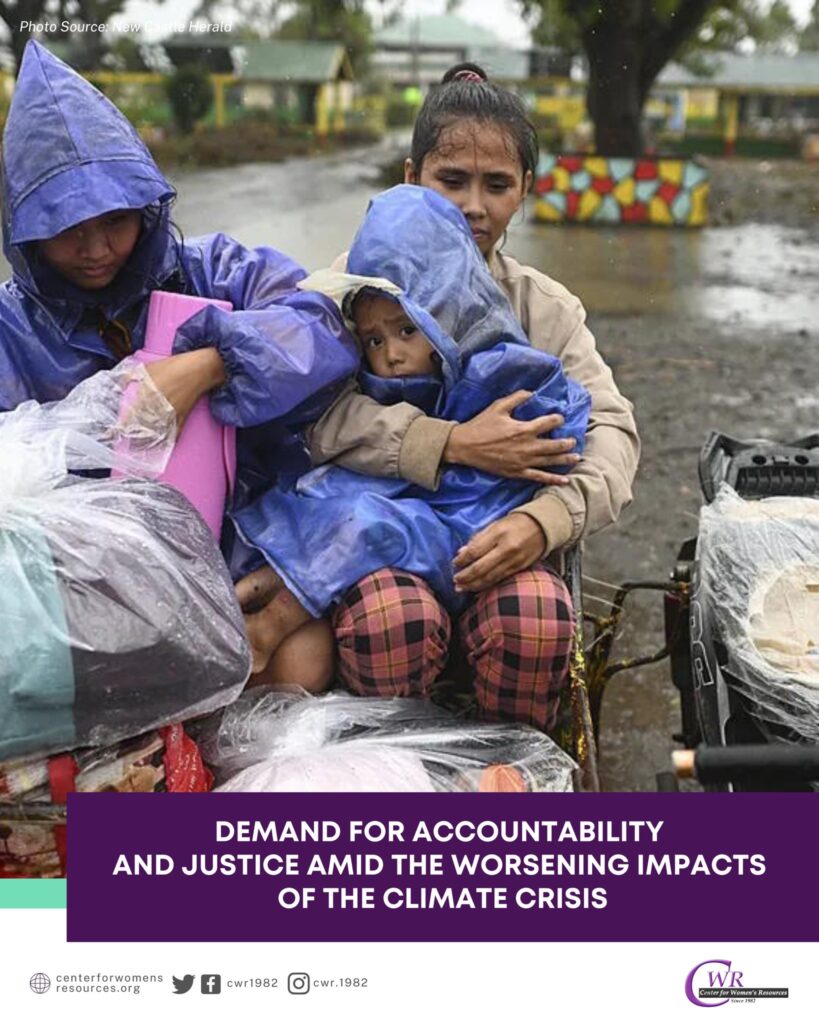Women’s rights and welfare are at stake in every election. Amidst a worsening economic crisis that severely impacts women—marked by rising prices of basic commodities, unemployment, low wages, rampant discrimination, and violence against women (VAW)—it is vital to ensure genuine women’s representation in Congress.
However, grassroots women are now facing a serious threat to their representation in parliament. The Gabriela Women’s Party (GWP), which has advocated for women’s rights in Congress for the past 21 years, has lost its seat. Throughout this time, GWP has maintained a consultative and inclusive approach, amplifying the voices of grassroots women and collaborating closely with institutions like the Center for Women’s Resources (CWR). Due to an electoral process marred by questions and irregularities, GWP has ended its 21-year congressional streak.
But the fight for women’s rights continues; it is far from over. To understand why a women’s sectoral party is absolutely essential, we must look at the legislation Gabriela has pushed and championed—laws that specifically address issues affecting women and marginalized groups.
In April 2025, before the midterm elections, CWR released a survey on women’s political participation, where women voters were asked what national and women’s issues they think candidates seeking office should address.
Results revealed that economic issues are women’s primary concern (61.35%), followed by the lack of social services particularly on health and education (29.26%). With regards to women’s issues, addressing gender-based abuse and VAW emerged as a top concern (28.9%), along with the respect and recognition of women’s rights and non-discrimination (15.1%).
Back in 2016, women presented a call for “CHANGE”—Comprehensive social services, Human rights, peace and social justice, Anti-discrimination and Violence Against Women and Children, National sovereignty, Genuine land reform and National Industrialization, and Environmental protection.
Bearing these calls in mind, Gabriela actively crafted bills and advanced laws that directly benefit women and other marginalized groups.
WOMEN’S AGENDA: Comprehensive social services
Social services and social welfare programs are essential in a feudal-patriarchal society where women are primarily expected to take care of the family. However, Filipino women still lack access to social services.
Due to budget misprioritization and corruption, the maternal mortality rate remains high, and the number of teenage pregnancies continues to surge. In 2023, 1,868 maternal deaths were recorded. That same year, the Philippine Statistics Authority (PSA) reported 142,276 teenage pregnancy cases. Of this number, 3,343 were the result of statutory rape.
In addressing these challenges, GWP pushed for the passage of the following landmark laws:
- RA 11210 or the Expanded Maternity Law (Principal author)
- RA 11861 or the Expanded Solo Parents Welfare Act (Principal author)
GWP also continues to call for the full implementation of Comprehensive Sexuality Education (CSE) and the immediate passage of the Prevention of Adolescent Pregnancy Bill.
WOMEN’S AGENDA: Anti-discrimination and Violence Against Women and Children
Filipino women are extremely vulnerable to violence, especially amidst a worsening economic crisis. According to the Philippine National Police (PNP), there were 12,046 cases of various types of violence against women from January to November 2024—a conservative figure due to the serious underreporting of VAW. This means that an estimated 36 women per day experienced violence during the said year.
Recognizing the urgent need to protect women and victim survivors, GWP sought the approval of the following laws:
- RA 9262 or the Anti-VAWC Law of 2004 (Co-author)
- RA 11648 or the End Child Rape Law
- RA 9775 or the Anti-Child Pornography Act of 2009 (Co-author)
- RA 11313 or the Safe Spaces Act (Principal author)
- HB 8009 – Anti-VAWC Law amendment (inclusion of Electronic VAW and penalty increase)
- Adoption of House Resolution No. 650 for the ratification of ILO Convention 190 that seeks to eliminate violence and harassment in the world of work
GWP has also persistently fought for the rights of women and the LGBTQI+ community. It continues to advocate for the passage of the SOGIESC Equality Bill and the Absolute Divorce Bill which has been approved on the third and final reading in the House of Representatives. It also co-authored RA 9710 or the Magna Carta of Women.
In addition to these laws, GWP also championed the following legislation in support of CHANGE:
- RA 11058 or the Occupational Safety and Health Law
- Magna Carta for Daycare Workers (House approved)
It also continues to call for the removal of regressive taxes that put additional burden on women such as the Value Added Tax, Excise Tax, and the Oil Deregulation Law. GWP also seeks to abolish the Rice Tariffication Law. Furthermore, it continues to advocate for genuine agrarian reform, national industrialization, and the implementation of the ₱1,200 national minimum wage based on the computed Family Living Wage—not band-aid solutions, but structural changes for the long-term benefit of women and the people.
Nearly a decade later, the demand for genuine change from women remains strong, as substantiated by the current status of women and the findings of CWR’s latest survey. Since winning a seat in Congress in 2004, GWP has consistently amplified women’s calls by advancing legislative efforts that have led to several landmark laws.
Coming from the people’s movement itself, Gabriela understands the deeply rooted ills of society that bar women from truly advancing. Without their representation, women risk losing their space, especially in a political environment that deliberately discriminates against, marginalizes, and stifles women’s voices.
CWR stands in solidarity with the Gabriela Women’s Party in their fight for women’s rights and welfare inside and outside Congress.



